The rise of Artificial Intelligence (AI) is transforming our world at an unprecedented pace. While AI offers exciting possibilities for innovation and progress, it also raises concerns about its impact on the workforce. One key question on everyone’s mind: Jobs that AI will replace – which professions are most at risk of automation?
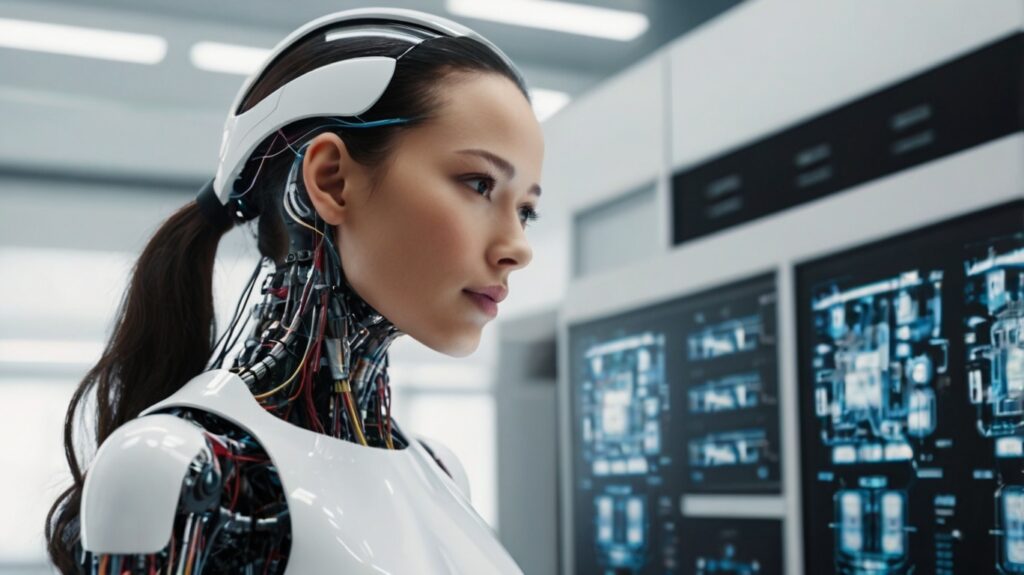
This blog post will delve into the potential impact of AI on job displacement, explore specific examples of jobs likely to be replaced, and offer insights on how to prepare for the future of work.
Table of Contents
ToggleWhy Are Some Jobs More Vulnerable to AI Replacement?
AI excels at tasks involving:
Repetition
AI can tirelessly perform repetitive tasks with high accuracy, making it ideal for automating data entry, assembly line work, and basic customer service interactions.
Data Analysis
AI can analyze vast amounts of data much faster and more efficiently than humans, potentially replacing jobs in bookkeeping, financial analysis, and market research.
Pattern Recognition
AI’s ability to identify patterns makes it well-suited for roles involving image and speech recognition, potentially impacting jobs like radiologists, loan officers, and fraud analysts.
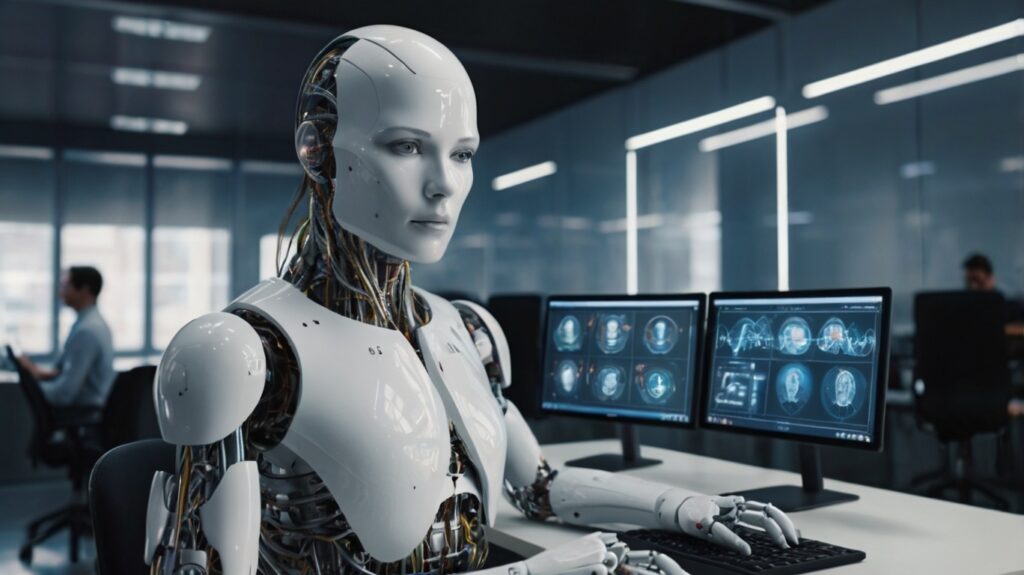
Jobs on the Chopping Block: Examples of AI Job Replacement
Here are some specific examples of jobs with a high risk of being replaced by AI:
Data Entry Clerks
AI can now automate data entry tasks with minimal human intervention, reducing the need for manual data input.
Assembly Line Workers
Manufacturing robots are becoming increasingly sophisticated, performing tasks traditionally done by assembly line workers.
Telemarketers
Chatbots and virtual assistants can handle many customer interactions, eliminating the need for human telemarketing.
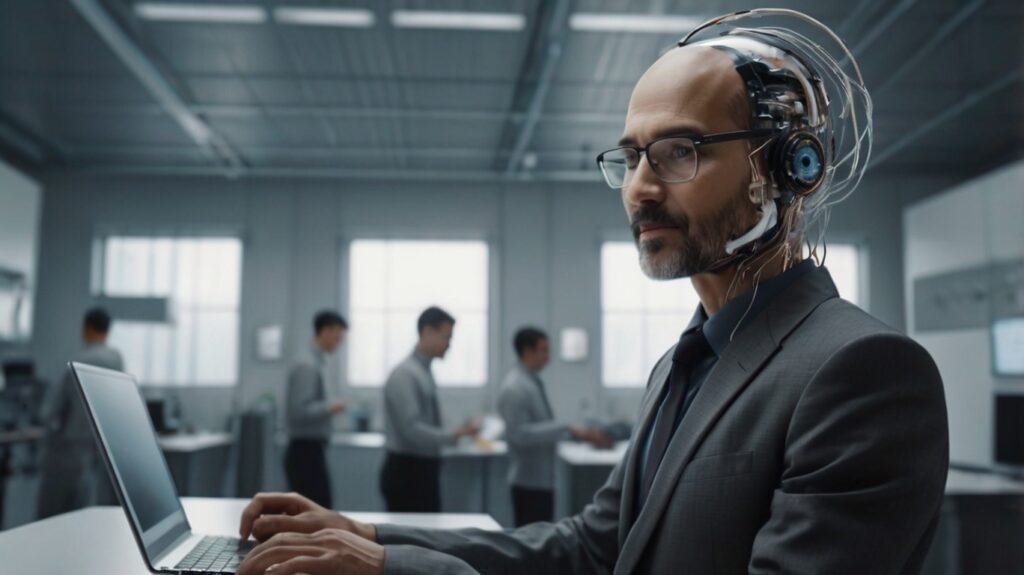
Truck Drivers
Self-driving vehicles are actively being developed, posing a significant threat to long-haul trucking jobs.
Cashiers
Self-checkout systems are becoming commonplace, potentially eliminating the need for cashiers in many retail settings.
Bookkeeping Clerks
AI-powered accounting software can automate bookkeeping tasks, reducing the need for human bookkeepers.
Loan Officers
AI algorithms can analyze loan applications and make lending decisions, potentially replacing loan officers in the financial sector.
Travel Agents
AI-powered travel booking platforms can streamline the travel booking process, reducing the need for traditional travel agents.
Proofreaders
AI-powered editing tools can identify and correct grammatical errors with high accuracy, potentially substituting for proofreading jobs.
It’s Not All Gloom and Doom: Jobs AI Can’t Replace
While AI will undoubtedly displace some jobs, it’s important to remember it won’t replace everything. Here are some job categories likely to remain safe:
Jobs Requiring Creativity and Emotional Intelligence
AI struggles with tasks requiring creativity, empathy, and social skills. Jobs like graphic design, writing, teaching, and nursing will likely remain in high demand.
Management and Leadership Roles
AI cannot replicate the human ability to lead, motivate, and make complex decisions. Jobs in management and leadership will likely require a unique human touch.
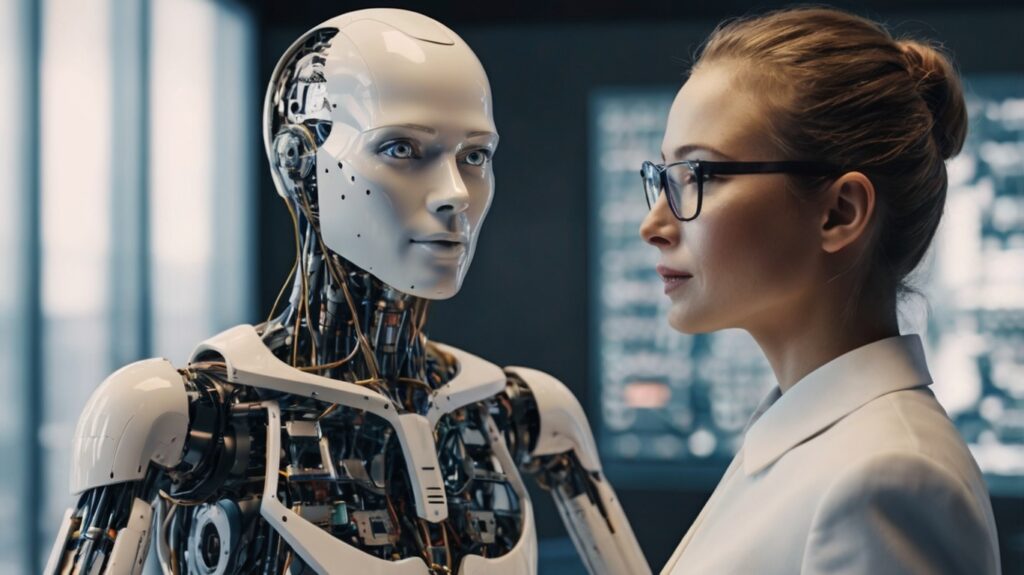
Jobs Requiring Physical Dexterity and Manual Skills
While AI can handle repetitive tasks, jobs requiring fine motor skills and adaptability, such as surgeons, robotics engineers, and electricians, will likely remain human-centric.
Preparing for the Future of Work: Upskilling and Adaptability are Key
The future of work will likely involve a blend of human and AI capabilities. Here’s what you can do to prepare:
Develop Adaptability
Remain open to learning new skills and adapting to changing work environments.
Focus on Soft Skills
Develop strong communication, collaboration, and problem-solving skills that AI cannot replicate.
Pursue Continuous Learning
Continuously expand your knowledge and skillset through online courses, professional development programs, or certifications.
Embrace Lifelong Learning
View learning as a lifelong process to stay relevant and competitive in the evolving job market.
The Bottom Line: AI is a Tool, Not a Threat
While AI will certainly change the job landscape, it’s not a reason to panic. AI can be a powerful tool for increasing efficiency and productivity. By focusing on developing human-centric skills and embracing lifelong learning, we can navigate this transition and thrive in the future of work.
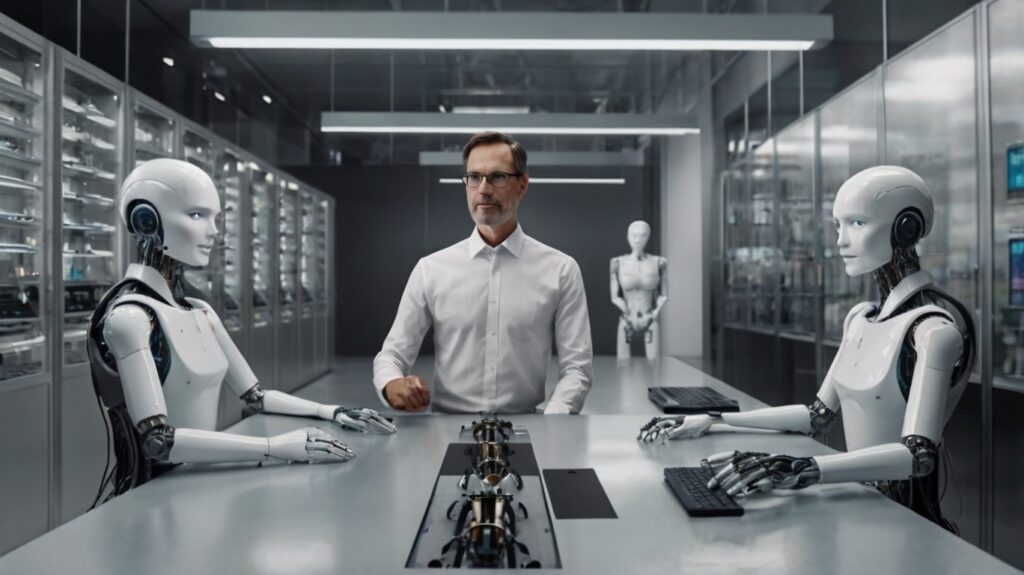
Here are some additional points to consider
- The pace of AI job replacement will vary across industries and geographical locations.
- Governments and educational institutions need to play a role in retraining and upskilling the workforce.
- Ethical considerations surrounding AI development and implementation must be addressed to ensure a fair and equitable future for all.
By staying informed, proactive, and adaptable, we can ensure that AI works for us, not against us, as we build the future of work together.
Conclusion: Embracing the Future with Confidence
The rise of AI presents both challenges and opportunities for the future of work. While some jobs will undoubtedly be replaced by automation, new opportunities will emerge requiring a different skillset. The key to success lies in embracing lifelong learning, developing human-centric skills, and fostering adaptability. By working alongside AI as a powerful tool, we can navigate the changing landscape and unlock a future of work filled with innovation, progress, and human potential. Remember, the future of work is not a destination, but a journey of continuous learning and growth. Let’s embark on this journey together with a spirit of curiosity, collaboration, and a shared vision for a thriving workforce in the age of AI.
FAQs (Frequently Asked Questions)
There’s a possibility AI could automate some aspects of your job, especially if your role involves repetitive tasks or data analysis. However, it’s unlikely AI will completely replace jobs that require creativity, social skills, or complex problem-solving.
Focus on honing “soft skills” like critical thinking, communication, collaboration, and adaptability. These skills are crucial for working effectively alongside AI and will remain valuable in the future workforce.
- Embrace lifelong learning: Take online courses, pursue certifications, or participate in professional development programs.
- Develop adaptability: Be open to learning new skills and adjusting to changing work environments.
- Network and connect with professionals in your field to stay informed about industry trends.
Governments can invest in retraining programs to equip workers with the skills needed for the AI-powered economy. Educational institutions can revise curriculums to focus on critical thinking, problem-solving, and technological literacy.
AI is a tool, not a threat. By focusing on developing human-centric skills and remaining adaptable, we can ensure AI works for us, creating a more efficient and productive future of work.
